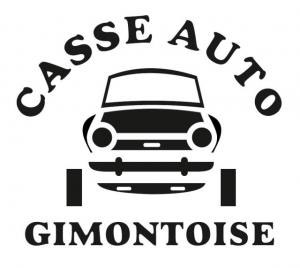This month is a possibility to celebrate the success of among our extremely successful entrepreneurs and merchants. Not Sir Richard Branson or Sir James Dyson, however somebody knighted for making fantastic theater. Advance Sir Nicholas Hytner, who this month is celebrating ten years as artistic director of the National Theatre. As priests and economic experts battle to find a basis for a successful brand-new economy, Hytnerachievements offer some useful signposts.
In his organization with the National
Hytner has actually been accountable for staging a string of programs incorporating vital acclaim with box-office draw. To name simply 3: the adaptation of Philip PullmanHis Dark Products, a lot more just recently, One Guy, Two Guvnors, and the international smash hit, Battle Equine.Read about https://more2screen.com/ At website My favourite was London Road, an incredibly effective musical comprised entirely of verbatim neighborhood response to the 2006 serial murders in Ipswich.
Appropriately, Hytner is best understood for his success as a really excellent manufacturer and director. But he is likewise the head of a company with an annual turnover of £extra pound; 80m, one that made a surplus last year and purchased brand-new facilities, regardless of a significant cut in Arts Council financing.
And he is a trendsetter, not just on the stage however, for example, in the Travelex period, offering tickets to both popular and sophisticated programs – around a fifth of which go to first-time site visitors – for £extra pound; 12. And when Hytner leaves his blog post, which he claims he will perform in the following couple of years, it will certainly remain in the wake of a £extra pound; 70m capital investment (most of which has already been increased) to transform the theaterhome on the South Bank.
Hytner is simply one of a number of highly successful leaders of British social institutions that have ended up being household names. Neil MacGregor of the British Museum and the TateNicholas Serota are other noteworthy examples. Their success, in addition to numerous others in the field, is based on some basic, linked and powerful principles.
First and foremost, the very best arts and heritage organisations are extremely business. Theyre constantly on the look-out for brand-new product or services, very efficient at creating their brand, and – lesson one for the rest of British sector – agree to make bold, long-term financial investments to safeguard their organisationfuture in a very competitive and fast-changing globe.
Second, although almost all our major arts organisations get some public financing, the very best leaders see this less as a kind of aid and even more as a stream of investment to permit growth and diversity. This is just as well. The National Theateraid has actually fallen by 15% in real terms in the last four years and arts funding is bound to be in for even more heavy cuts in the following investing evaluation.
Third, Hytner and his successful peers are acutely responsive to the difficulties and chances developed by the increase of electronic content and the development of new global audiences for British product. One of Hytneradvancements is NT Live, which broadcasts the most effective of the theatrework from the London phase to cinemas across the UK and around the world and assisted to generate an international audience in 2015 of 3.2 million.
4th, one of the most effective cultural organizations reject a straightforward difference between creative quality and industrial web content. At the top of these organisations, there is frequently a powerful collaboration between creative and industrial management. As executive supervisors, Nick Starr, Kate Horton and Vikki Heywood may not have had the same profile as their corresponding creative opposite numbers Hytner, Dominic Cooke at the Royal Court and Michael Boyd at the Royal Shakespeare Company. But the success of their organisations originates from a degree of co-operation and joint dedication that many personal and public firms yearn for.
Although it still increases the hackles of Tory free-market fundamentalists, in the federal governmentpursuit for development, union ministers, specifically Vince Cable television and David Willetts at the Division for Company, Advancement and Abilities, have actually agreed to talk about the need for commercial technique. Life sciences, progressed production and power are all the topic of industrial methods and federal government financial investment. Yet, possibly partly as a result of the blurry boundaries of the market, innovative sectors do not appear to be on the radar regardless of the fast-growing international market for imaginative items and services.
If we were to have an innovative industry industrial strategy, a hard question it would require to address hinge on the partnership between the publicly subsidised, high-end arts sector and the rest of an industry that integrates whatever from marketing to fire em up video games.
In the face of cuts in arts moneying and the elimination of direct aid for the liberal arts in higher education, the industryself-appointed spokespeople, such as the usually outspoken Hytner, alert that the well spring for future development might run dry. It seems like common sense and various other countries, consisting of Germany, are guarding arts funding while reducing other budget plans. Yet the dependable proof is rather limited. Unlike design, when it pertains to work in imaginative industries, there is normally no shortage of individuals with the certifications or cravings to load them.
Yet organizations such as the Tate and National Theatre should definitely be seen as both commercial and social success stories. Fairly modest amounts of public financing have actually levered in multiples of revenue from paying clients, business partners and benefactors. In addition to the straight substantial income, there is the broader effect in tourism and, broader still, the British brand name abroad. All this from artefacts and events that improve our society and brings enjoyment and enlightenment to millions.
Maybe this, also, is a lesson for larger market
From both commentators and company leaders, there is a growing acknowledgment that lasting business success depends upon business being concentrated on a goal to create wonderful products and services that benefit consumers and culture. Firms that sell their spirits for shareholder returns additionally, in time, lose their method.
There may be occasional objections of over-hyped and overcrowded blockbuster art shows, of the broadening present stores, and even the National Theatre has its turkeys. However there is little doubt that what drives people such as Hytner is the love of their art kind and the burning need to open its prizes to a bigger target market. So, in addition to congratulating Sir Nicholas on his one decade, we need to be hearkening the lessons he has to instruct. Lessons regarding the creativity, entrepreneurialism and business ethos Britain requires to take, a high road to economic development. And proceeding satisfaction.
 Nicholas HytnerNational Theater supplies a layout for British organization |

